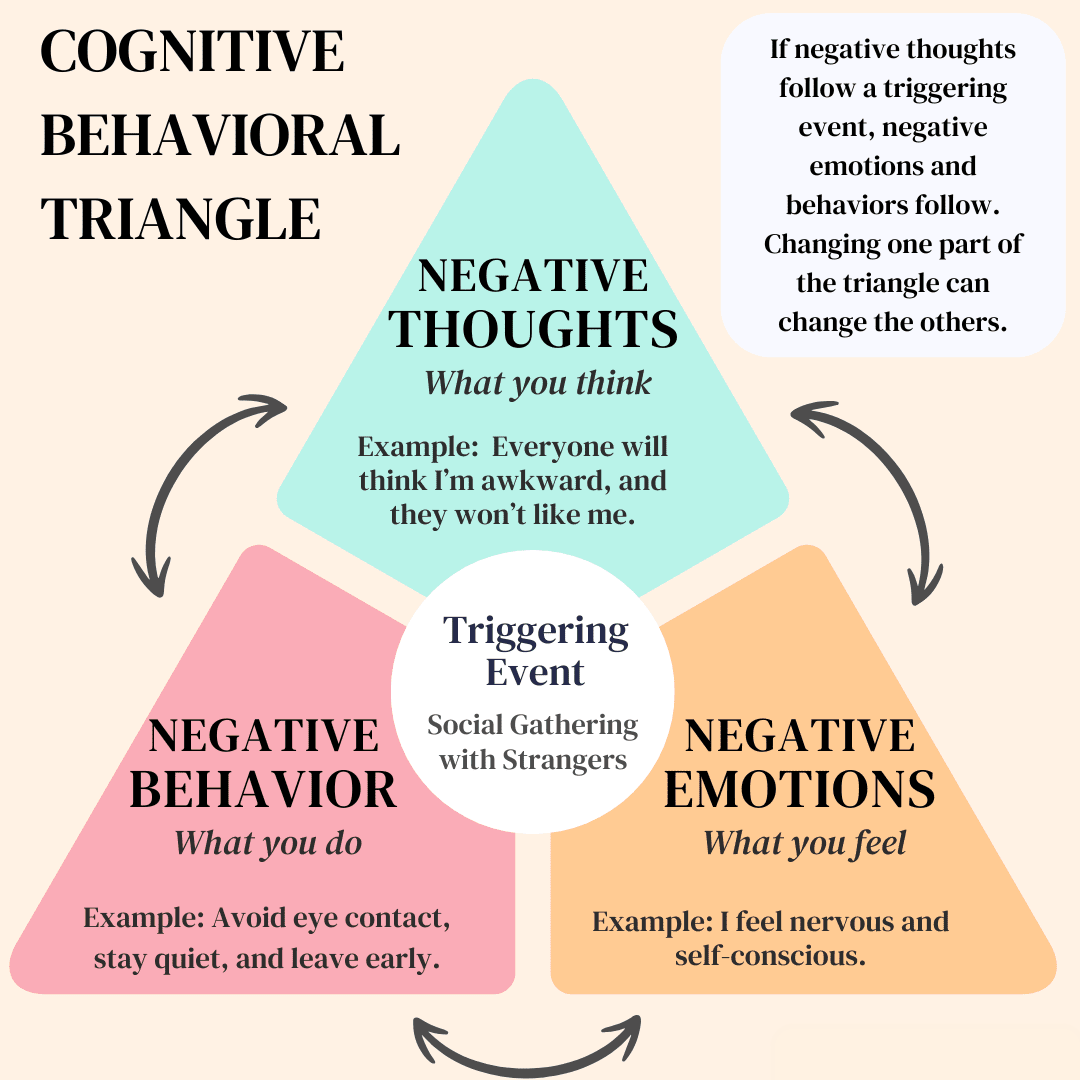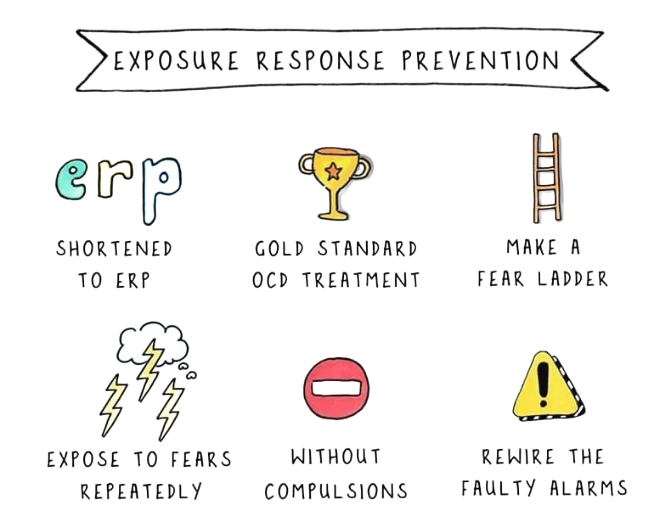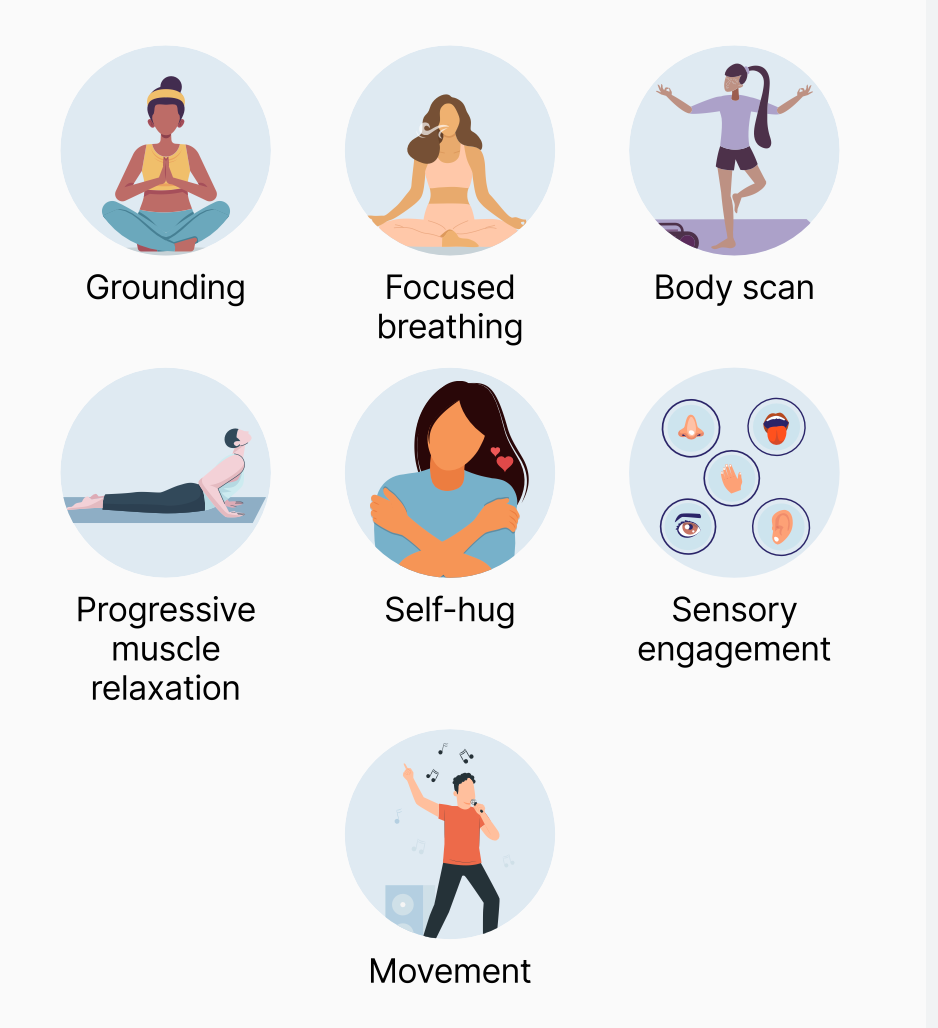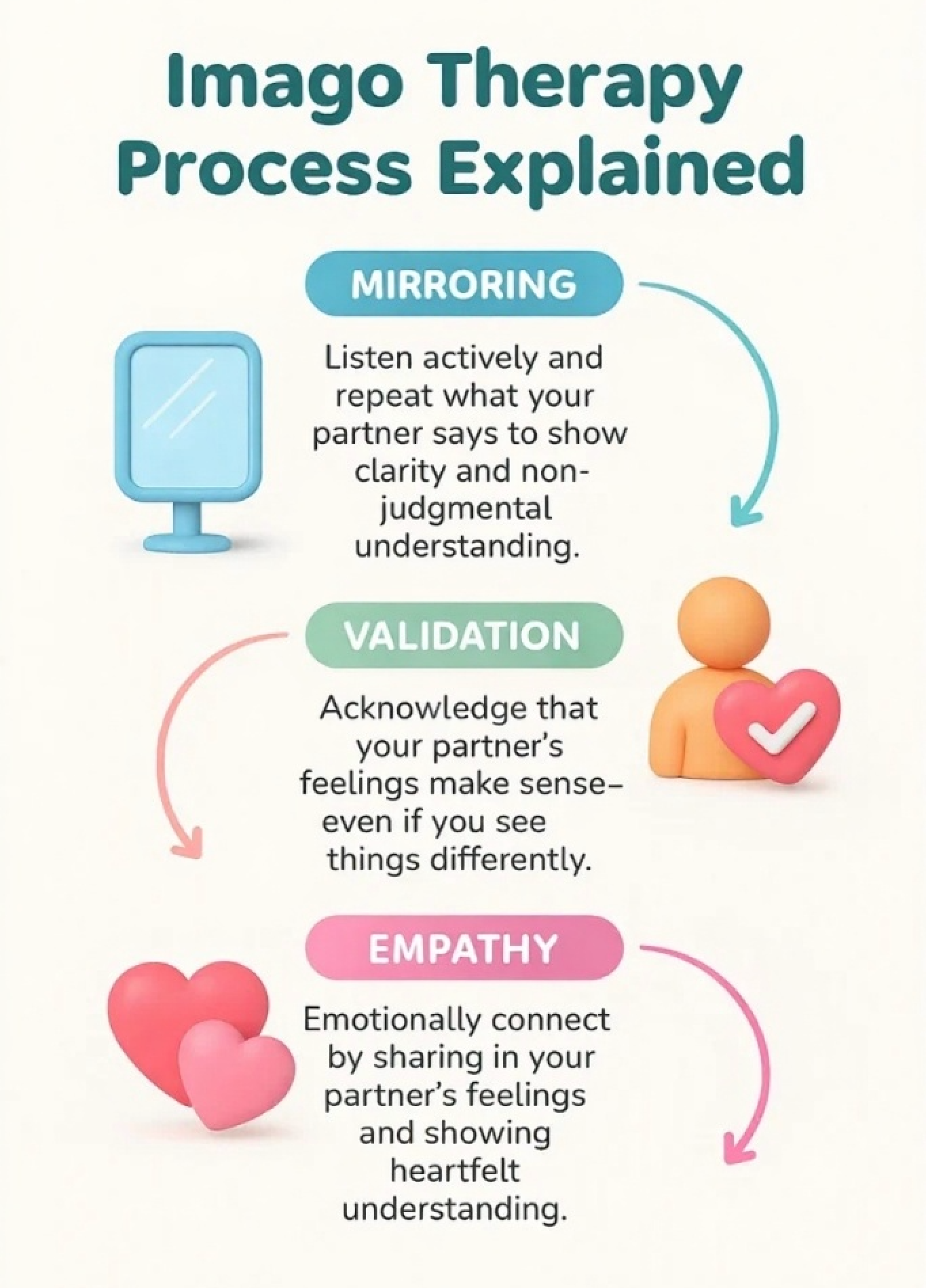My Approach
At Wildflowers Within Counseling & Wellness, I believe in using evidence-based approaches that are practical, effective, and always tailored to your unique story. Here’s an overview of the methods I use most often in therapy:
Cognitive Behavioral Therapy

CBT focuses on the connection between thoughts, feelings, and behaviors. When your mind is stuck in “what ifs” or self-criticism, it shapes how you feel and act. CBT gives you tools to notice unhelpful thought patterns, challenge them, and replace them with perspectives that help you feel more grounded and in control.
Exposure Response Prevention Therapy

ERP is the gold standard treatment for OCD and panic. Instead of avoiding triggers or relying on compulsions for relief, ERP helps you face fears in small, manageable steps while practicing new ways to respond. Over time, this retrains your brain to see that you are safe and that anxiety doesn’t have to run the show.
Somatic Interventions

Trauma and anxiety aren’t just in your head, they live in your body, too. Somatic interventions focus on noticing and gently shifting the physical sensations of stress, anxiety, or trauma. This might include grounding techniques, breathwork, or body-based awareness exercises to help you feel calmer, more present, and safe in your own skin.
Dialectical Behavior Therapy

DBT blends acceptance and change. It validates that your emotions make sense, while also teaching skills to manage them in healthier ways. DBT provides tools for mindfulness, distress tolerance, emotion regulation, and communication, making it especially helpful for managing big emotions and building stronger relationships.
Gottman Method Couples Therapy

The Gottman Method is backed by decades of research on what makes relationships succeed. It helps couples improve communication, trust, and conflict management while deepening friendship and intimacy. Using practical tools, couples learn to break unhealthy patterns, resolve issues in healthier ways, and strengthen their foundation.
Imago Couples Therapy

Imago looks at the unmet needs and old wounds that show up in relationships. Instead of staying stuck in blame or defensiveness, couples learn to communicate through structured dialogue that builds empathy and understanding. Imago helps partners see each other’s pain more clearly and respond with compassion, creating deeper connection and healing.
